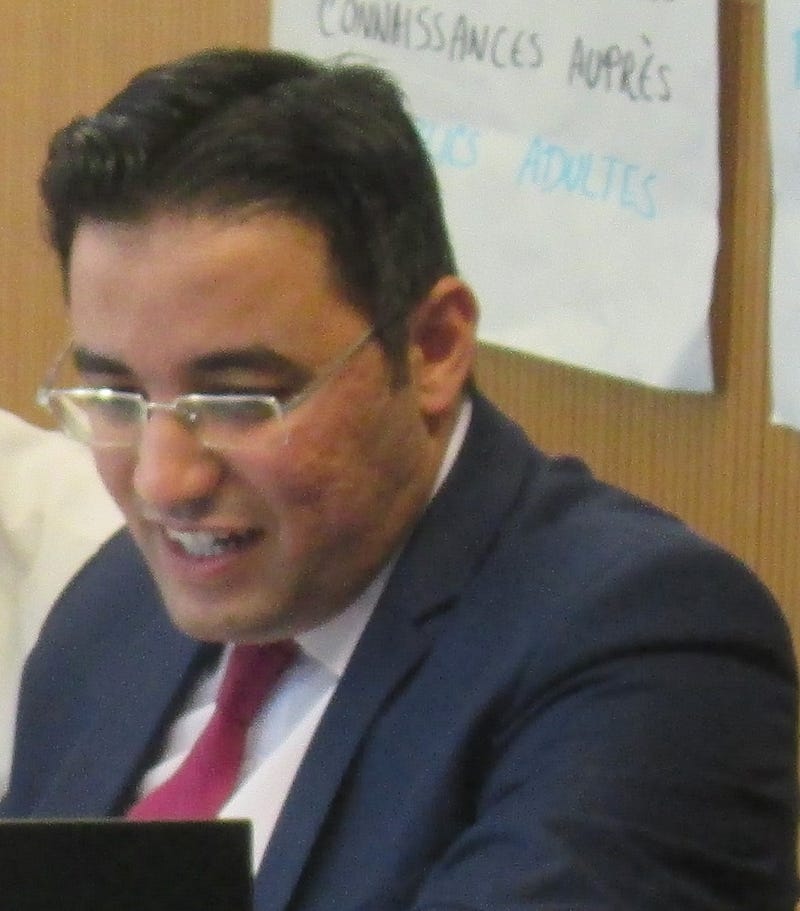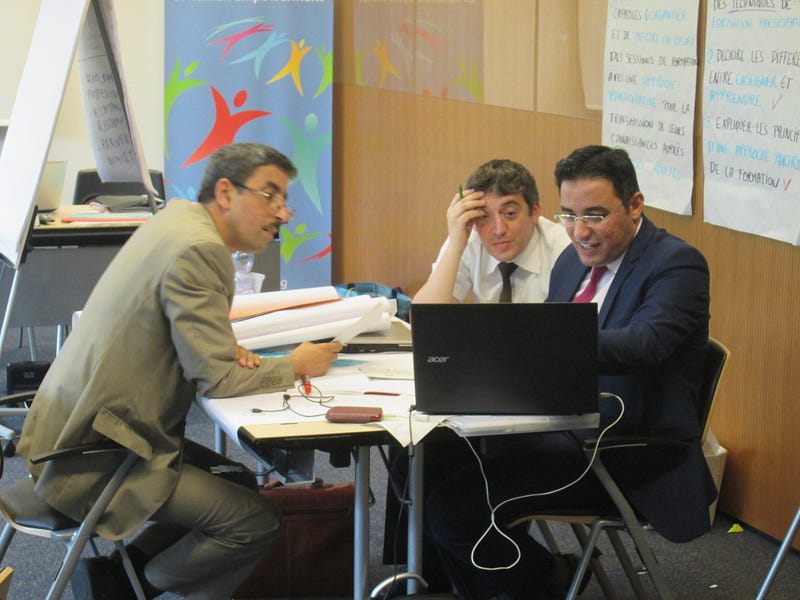The son of a retired army officer, 33 years old Tayeb Toufik Dahar wasn't encouraged to follow the same path, as his father didn’t oblige him to embrace a military career. “He recognized I had the same strong leadership skills as him, but he encouraged me to break into academia instead, like he would have wanted himself, and all the more so as he had lived through troubled years on active service.”

At the young age of 22, he successfully graduated Algeria's Ecole Nationale d'Administration in 2006. It wasn't long before he started working for the Ministry of Interior as an administrator for the human resources department, where he had a great opportunity to put his IT professional skills to use, despite the scepticism of older colleagues.
“I am part of a new generation of Algerian officials, and I had to deal with senior co-workers, aged fifty-five or older. On the one hand, these people had a great experience to share with me and it was very helpful to my own career. On the other hand, they didn't fully understand the potential of the new tools people my age already mastered. Everything computer related was met with some kind of distrust, and some insisted we keep on working with outdated methods.”

“My way of convincing them was to show them how interesting those new tools were to them in their daily work, to involve them directly. I especially remember a man in his fifties, dealing with promotion processes, a task that could take up to a whole month to complete for all the Ministry's employees. I developed a database and showed him that all his work could be done in one minute. 'That's impossible', he told me, 'there must be some errors in the results'. I suggested he checked if everything was alright, step by step. When he was done, he brought me back to my supervisor and admitted: 'That's some fantastic tool!'”
Beside his position as Deputy Director General Directorate of Human Resources, training and statutes, Tayeb is also in charge of implementing some major shifts in the administration of local communities in his home country, a mission directly linked to the doctoral thesis he's currently working on at the Doctorate School of State and Public Institutions.
“Algeria's government has chosen a new economic model for our local communities, based on a territorial perspective. Until recently, everything was planned top-down, with up to 80% State funding. From now on, local authorities will be encouraged to get involved in a bottom-up approach. The real problem here is the creation of wealth and sustainability of resources. Take for example a small seaside city: some places might look like paradise, but all of its potential is not correctly exploited and the council has always lived from State funding, so the city is quite poor. It has yet to promote tourism-oriented activities or even develop its own agricultural or industrial fabric.”
“We are therefore facing cultural biases from an old generation, used to top-down State economics, and UNITAR's courses have been very useful to me as a trainer, in order to better convey the idea of a new dynamic approach to strengthen our territories' competitiveness. The real challenge will be to bring to life a new generation of managers and leaders that will carry out this vision.”
“Before these courses, I already had a strong motivation to spread knowledge to our officers. But I still was somewhat of an amateur, and in discovering the mistakes I have made, I could think over the way I delivered my own courses, in particular to an adult public. Most of the time, our managers and senior level officers are being talked to like they were children, with teaching methods suitable for a very young public. But many of them have a substantial experience, sometimes a solid academic background. Such an audience needs to be involved in their own learning process, and you have to use participatory methods that will value their personal experience, even during the conception of the educational content. This is a whole new approach, focusing not on the teacher but on the adult learners. This means forgetting the old pedagogic methods and embracing new pedagogic techniques.”
“And that's exactly what we got with UNITAR's courses. We were most of the time outside the classroom, in small groups, role-playing, writing on the walls, with our teacher only directing the momentum. When I came back to Algeria and showed the photos to my wife and friends, they had a hard time believing we were actually learning something useful and serious! It all was so different from regular courses in Algeria, where everyone sits in silence, with nothing to share with each other. It has been a short, but unforgettable experience.

